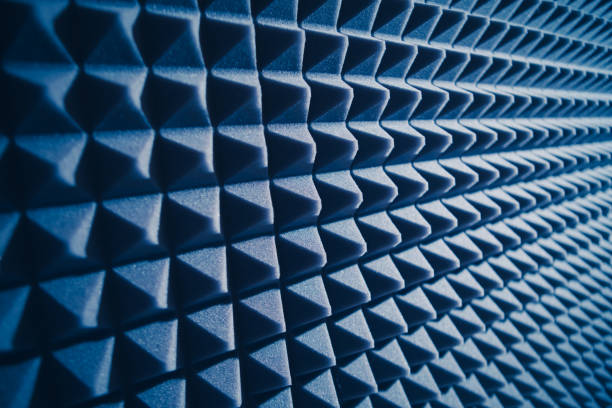Video conferencing has become a crucial component of contemporary office life in the era of technology. Businesses now place a higher premium on establishing ideal workplace acoustics for video conferencing as remote work and virtual meetings grow more common. The acoustic panels that were once only used to reduce noise in actual office settings are now being modified to improve the audio and general experience of online meetings.
Understanding Office Acoustics’ Importance for Video Conferencing
Acoustic panels are utilized in typical office settings to lessen noise interruptions, offer privacy, and enhance focus. But as video conferencing has become more prevalent, the importance of office acoustics has grown. In locations used for video conferences, poor acoustics can result in several problems:
Echoes and Sound Reflections: During video chats, the echo effect caused by sound reflections in the room can make it difficult for participants to comprehend and follow conversations.
Background noises from nearby workstation chats, printers, and other office noises might make it difficult to communicate during virtual meetings.
Audio Clarity: Poor acoustics can cause the voice to be muffled and audio quality to be distorted, which can cause confusion and annoyance during video conferencing meetings.
The Function of Acoustic Panels in Video Conferencing: To overcome these difficulties, acoustic panels are now thoughtfully positioned in office settings to enhance video conferencing. These panels’ purpose is to adjust the acoustics of virtual meetings by absorbing sound and reducing noise reflections. During video conversations, acoustic panels ensure participants can speak clearly and have fruitful talks by reducing background noise and improving audio quality.
Advantages of Customizing Acoustic Panels for Video Conferencing
Better Audio: Acoustic panels improve audio quality by reducing echo, reverberation, and sound reflections, making video calls’ audio clearer and easier to understand. Enhanced audio quality encourages improved participant communication and comprehension.
Enhanced Focus: Acoustic panels make it easier for video conferencing participants to concentrate on the agenda and goals of the meeting by reducing background noise disturbances.
Increased Productivity: Better communication and fewer audio interruptions make virtual meetings more effective and productive, saving time and fostering teamwork.
Professional Image: To clients, partners, and stakeholders, offices with video conferencing-optimized acoustics project a professional image, displaying a dedication to efficient communication.
Acoustic Panels for Video Conferencing: Implementation Considerations
Placement: Choose critical spots in the business, such as conference rooms or meeting rooms, where video conferencing is frequently conducted, and put acoustic panels there.
Space Size and Shape: When selecting and installing acoustic panels, consider the space’s size and shape. Larger spaces can need more covers to properly reduce sound reflections.
Combining Acoustic Solutions: To further enhance the room’s acoustics, consider various acoustic solutions, such as ceiling baffles and acoustic drapes. See more.
Integration with Technology: Check that the placement of acoustic panels does not impede or otherwise interfere with video conferencing tools like cameras and microphones.
The Future of Video Conferencing and Office Acoustics
The technology and solutions focused on enhancing office acoustics for video conferencing will advance along with how the workplace continues to change. Smart acoustic systems that automatically modify sound settings based on the unique video conferencing scenario may be made possible by artificial intelligence and adaptive acoustics developments. This ongoing evolution will make Future video conferencing experiences more fluid and engaging.
Video conferencing has completely changed how we cooperate and interact at work in the digital age. Workplace acoustics must be strategically used with acoustic panels to optimize video conferencing to ensure crystal-clear audio, enhanced collaboration, and fruitful virtual meetings. Businesses may create a professional and effective setting that fosters remote collaboration and keeps teams linked, regardless of physical location, by adapting and incorporating acoustic panels into video conferencing situations.



